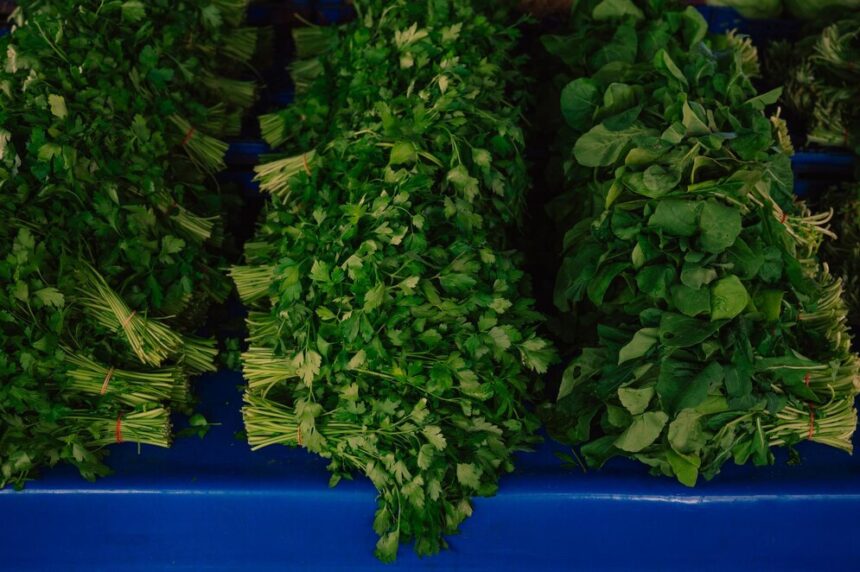Selling fresh herbs locally can be a highly profitable venture for small-scale farmers, urban gardeners, and backyard growers. With the rising demand for organic, locally grown produce, fresh herbs such as basil, mint, rosemary, thyme, coriander, and parsley are increasingly popular among chefs, home cooks, and health-conscious consumers. However, success in this niche depends largely on identifying and targeting the right local markets.
Whether you’re growing herbs in rural plots or urban gardens, choosing the right sales channels can help you maximize profits and build a strong customer base. Here’s a detailed look at the best markets for selling fresh herbs locally.
1. Farmers’ markets
Farmers’ markets are among the most direct and effective places to sell fresh herbs. These markets attract customers who value freshness, flavor, and sustainability.
Why it’s ideal:
- Direct-to-consumer sales mean better profit margins
- You can build customer relationships and receive immediate feedback
- Shoppers are often looking for herbs to complement produce and other ingredients
Tips for success:
- Offer bundled herbs (e.g., a mixed cooking or tea bundle)
- Display your herbs attractively with clear labeling
- Provide recipe ideas or usage tips to increase sales
2. Local grocery stores and health food shops
Many independent grocery stores and health food shops prioritize locally grown herbs over mass-produced imports. If your herbs are organically grown and harvested fresh, this can be a stable, long-term outlet.
Why it’s ideal:
- Regular, bulk sales provide steady income
- Consumers trust local supply chains
- Less marketing effort compared to direct sales
Tips for success:
- Approach store managers with well-presented samples
- Maintain consistent quality and delivery schedules
- Offer seasonal or specialty herbs like lemon balm, chervil, or tarragon
3. Restaurants and cafes
Local restaurants—especially those focused on fine dining, farm-to-table, or ethnic cuisine—often seek high-quality herbs with intense flavor. Selling directly to chefs can build a loyal customer base.
Why it’s ideal:
- Chefs are willing to pay premium prices for freshness
- Regular orders can help you forecast production
- Opportunities for specialty herbs and edible flowers
Tips for success:
- Reach out to chefs personally with a sample box
- Provide a list of available herbs weekly
- Deliver consistently and on time
4. Community Supported Agriculture (CSA) programs
If you’re already part of or can join a CSA program, adding fresh herbs to weekly boxes can be a unique selling point. CSAs offer local consumers subscriptions to seasonal farm produce.
Why it’s ideal:
- Predictable income through pre-paid subscriptions
- Strong community connections
- Herbs add value and variety to CSA boxes
Tips for success:
- Include common and lesser-known herbs
- Offer drying or storage tips with the herbs
- Ask customers for feedback to tailor future deliveries
5. Online marketplaces and delivery services
Selling herbs through local online platforms or delivery services has grown in popularity, especially in urban areas. You can reach customers looking for convenience and local sourcing.
Why it’s ideal:
- Expands your reach beyond physical markets
- Offers contactless transactions and flexible schedules
- Can be combined with other farm products
Tips for success:
- Maintain high packaging standards for freshness
- Partner with local delivery services for logistics
- Use social media to promote your offerings
6. Farm stands and roadside stalls
If you have access to a farm or garden with roadside visibility, setting up a small stand is a simple and effective way to sell herbs locally.
Why it’s ideal:
- Low setup costs
- Encourages impulse buys from local traffic
- Builds local recognition and loyalty
Tips for success:
- Use clear signage and fresh displays
- Offer self-service with an honesty box or mobile payment
- Keep herbs cool and shaded throughout the day
7. Herbalists, wellness centers, and local spas
With growing interest in natural health and wellness, herbalists and wellness practitioners often seek fresh herbs for teas, tinctures, and aromatherapy products.
Why it’s ideal:
- Opportunity to sell in bulk or dried formats
- Potential for ongoing collaborations
- Niche herbs (like lavender, lemongrass, or holy basil) are in demand
Tips for success:
- Understand which herbs are used medicinally
- Offer organically grown options
- Educate buyers about growing methods and harvesting times
The best markets for selling fresh herbs locally are those that align with your production scale, target customer, and location. Farmers’ markets, local grocers, restaurants, and CSAs are excellent starting points, while online platforms and direct-to-consumer strategies can help you scale your business.
Success in herb farming isn’t just about growing high-quality produce—it’s about knowing where and how to sell it. With a thoughtful approach to your local market, you can turn a small herb garden into a thriving and sustainable business.







